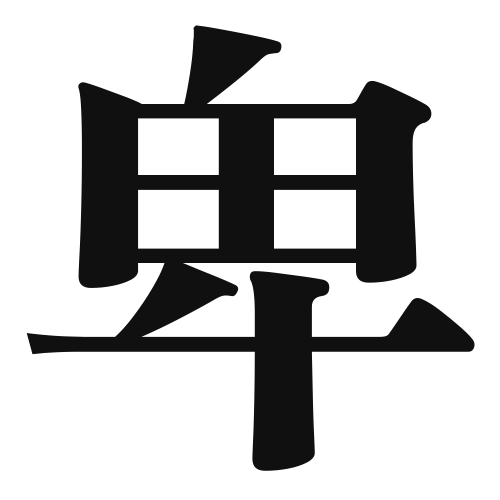1. Overview of Meaning
The kanji “卑” (hi) generally means “low,” “humble,” or “base.” It often carries a negative connotation, referring to something that is considered inferior or despicable.
2. Formation and Radical
Formation of the Kanji: The kanji “卑” is a phonetic-ideographic character (形声文字). It combines the radical for “food” (食) and a phonetic component that suggests its pronunciation.
Radical: The radical for “卑” is “卩” (seal), which is often associated with concepts of lowliness or humility.
3. Examples of Usage
Common Words and Phrases: Some frequently used words that include “卑” are “卑怯” (hikyou – cowardice) and “卑屈” (hikuku – servile).
Example Sentences in Daily Conversation:
- 彼は卑怯な行動をした。 (Kare wa hikyou na koudou o shita.) – He acted cowardly.
- 卑屈な態度は良くない。 (Hikuku na taido wa yokunai.) – A servile attitude is not good.
4. Synonyms and Antonyms
Similar Kanji: A similar kanji is “低” (tei), which also means “low,” but it is more neutral and can refer to physical height or level without negative connotations.
Opposite Kanji: The opposite kanji is “高” (kou), meaning “high” or “tall,” which conveys a sense of superiority or elevation.
5. Cultural and Historical Background
Relation to Japanese Culture: In Japanese culture, humility is often valued, and the concept of being “卑” can reflect a negative trait when taken to an extreme, such as excessive self-deprecation.
Proverbs and Idioms: An example of a related proverb is “卑屈は美徳にあらず” (Hikuku wa bitoku ni arazu), which means “Being servile is not a virtue.”
